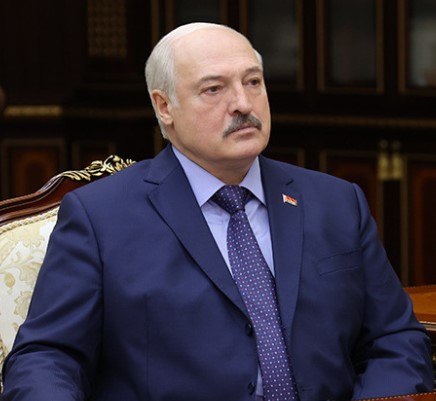U.S. warns of sanctions risks for foreign banks over Mir

The US Treasury did not impose sanctions on the National Payment Card System (NSPK), the operator of the Mir system, but warned that "non-US financial institutions that enter into new or expand existing agreements with NSPK risk supporting Russia's efforts to circumvent US sanctions." This is stated in the explanation of the department.
Such risks arise "due to the expanded use of the Mir national payment system outside the territory of the Russian Federation." The Ministry of Finance emphasizes that the NSPK processes "transactions for certain Russian banks (many banks are under US blocking sanctions. -) and can be used to process transactions involving other persons." At the same time, restrictions on RUSSIA allow the U.S. Department of the Treasury Sanctions Department (OFAC) to “impose blocking sanctions on individuals who are found to have provided material assistance, sponsored or provided financial, material or technological support, goods or services for or in support of any activity, subject to sanctions." This also applies to the use of Mir cards outside of Russia, follows from the clarification.
In the new package, the United States imposed sanctions against the CEO of the Mir card operator, the National Payment Card System (NSPK), Vladimir Komlev, but did not include the NSPK itself in the sanctions list. RBC sent a request to the NSPK.
The United States imposed sanctions against Oreshkin and the Kadyrov family Politics
Now Mir cards are accepted in Turkey, Vietnam, SOUTH KOREA, Armenia, Uzbekistan, Belarus, Kazakhstan, Kyrgyzstan, Tajikistan, South Ossetia and Abkhazia, apart from Russia, the possibility of their work in a number of other countries is also being discussed.
How sanctions against Russia are reflected on Mir maps
NSPK is not under any sanctions, and Mir cards work in several countries outside of Russia, primarily in the CIS. Relevant agreements are concluded with specific banks, that is, some banks in the country can accept Mir cards, and some cannot. So, this year, after the start of the special operation in Ukraine, several large Turkish banks joined the reception of Russian cards. Mir is one of the last easily accessible ways for Russians to pay in a number of countries, since Visa and Mastercard payment systems left Russia in March: their cards continue to operate in Russia through the NSPK, but have ceased to work abroad.
Read on RBC Pro Pro How to save your property if you are bankrupt.Legitimate Ways Articles Pro In it, you can have a high salary in your first position.Who to study Instructions Pro 90 days before the shutdown of foreign cybersecurity systems.What To Do Instructions Pro Time Hard:Why Companies Are Bored of Soft Skills Pro Articles Five Tipsto start meditating regularly Instructions Pro The load on Russian IT companies has increased significantly.How to deal with them Instructions Pro You have 100 thousand rubles.How to start trading on Wildberries Pro Instructions What a simple daily habit will help push back old age Researchvideo
The Mir payment system explained the problems with its cards in Turkey
However, on September 15, the Financial Times reported that the US and EU authorities would increase pressure on Turkey due to the connection of local banks to the Mir payment system. “We will send a very clear signal that, for example, third-country financial institutions should not connect to the Mir payment network, because, as you know, this involves some risks of sanctions evasion,” a Western official told the publication. According to the FT, the EU, in particular, "is preparing a delegation to directly express its concerns [on this issue] to Turkish officials."
Holders of Mir cards may already experience difficulties with payments abroad, in particular in hotels in Turkey, travel portals and TELEGRAM channels reported on September 14, citing the instruction of the Central Bank of Turkey. However, the Association of Tour Operators of Russia emphasized that "there is no documentary evidence of the presence of instructions from the Central Bank of Turkey to ban the acceptance of all Russian cards." The NSPK explained that problems may arise with the cards of not all Russian, but only sanctioned banks.
Demand for cards of CIS banks has grown sharply after the departure of Visa and Mastercard Finance
In addition to Mir cards, a number of Russian banks can open cards of the Chinese UnionPay payment system, which operates in 180 countries around the world. However, her cards of Russian banks can also work intermittently: they are not accepted at all foreign ATMs and POS-terminals due to sanctions, RBC wrote.
What are the risks of turning off Mir abroad
The likelihood of sanctions against foreign banks accepting Mir cards is very high, the potential negative financial and reputational consequences for banks will be significantly higher than the income from operations with Russian cards, says Konstantin Karichev, managing partner at GRM law firm. The larger the bank, the higher the risk for it, says Anton Imennov, senior partner at Pen & Paper.
These sanctions may apply to any US assets, if any, including correspondent accounts, securities, real estate, transactions through US banks, and so on. Secondary sanctions are also possible in the form of a ban or restriction on work with banks that ignore sanctions for other companies, banks and individuals, Karichev continues. Since any transactions with US dollars require the participation of American banks, the inclusion in the sanctions list for any credit institution will automatically mean the inability to interact with the US financial system, to carry out transactions in dollars, Imennov adds.
FT learned about US and EU plans to put pressure on Turkey over Mir cards Politics
According to Pavel Ikkert, managing partner of the Ickert & Partners law firm, banks from those countries whose interests in relation to Russia are insignificant may refuse to cooperate with Mir cards, as they will choose stability in dialogue with the West. “However, those credit institutions that are interested in sitting on two chairs, such as Turkish banks, will find ways to get around,” admits Ickert.
“The decision of each particular bank will depend on its risk appetite. It is likely that Turkish banks will take such a “Chinese warning” quite seriously, since they have already repeatedly received warnings from US officials about the risks of circumventing sanctions against Russia, and most importantly, the inevitable responsibility for such actions, ”Imennov disagrees. In his opinion, the same possibility exists in relation to banks in Kazakhstan, Kyrgyzstan and Armenia, since these countries are already extremely cautious in the field of EXPORT control, trying not to violate US sanctions in this area.
Banks in Belarus, which are much more connected with Russia than the United States, may not pay attention to this warning, and may take the risks of US sanctions, but at the same time remain connected to the Russian financial system, Imennov suggests. Also, in his opinion, Iranian banks, which had such plans and are already under US sanctions, can join the Mir system.
See also The United States announced the risks of sanctions for foreign banks due to Mir cards 00:50
Risks not only for NSPK
In addition to Komlev, former and current heads of other backbone financial structures fell under the sanctions: Andrey Melnikov, CEO of the Deposit Insurance Agency, Viktor Zhidkov, Chairman of the Board of the National Settlement Depository, and Eddie Astanin, former HEAD of NSD, who headed the National Clearing Center in 2020 (according to Frank Media , he has already left this post).
Neither the DIA nor the NSD came under US sanctions. The depositary has been under European sanctions since June. Because of this, Russian holders of securities, which are recorded in European depositories (they interacted with Russia just through NSD), faced an asset freeze. However, they lost access to them back in March, and the sanctions, in fact, consolidated this situation.
The National Depository canceled commissions for the sake of unfreezing the assets of Russians Finance
NSD is now trying to unfreeze the assets of unsanctioned persons. The European Commission allowed settlements to take place under two conditions: if the depository does not receive any economic benefit from such transactions and if the transactions are agreed with the regulators of the countries in which NSD's foreign counterparties are registered. The depository is already refusing to remunerate, but even if there are clear conditions, it will not be easy to make calculations, experts warned.
The representative of NSD declined to comment, RBC sent a request to Moscow Exchange, which group includes NSD.
Read together with it:
- Парагвай: Экспорт субпродуктов является растущей отраслью и уже достиг 95,4 млн долларов СШАЭкспорт говяжьих субпродуктов в этом году значительно вырос. К концу августа выручка составила 95,4 млн долларов США по сравнению с 54,6 млн долларов США на тот же конец прошлого года. По данным SENACSA, в конце августа этого года было экспортировано 51 миллион килограммов мяса по сравнению с 33,7 миллиона килограммов на конец того же месяца прошлого года. Экспорт субпродуктов увеличился на 51,3%....
- Новые горизонты сотрудничества: Россия и Аргентина обсуждают совместный доступ на рынки продукции животного происхожденияОдной из ключевых тем конференции стал контроль за производством ветеринарных препаратов в Аргентине. Аргентинская сторона представила свою систему контроля, включающую Управление ветеринарных продуктов и Управление лабораторий животных. Эти организации обеспечивают высокие стандарты безопасности, так как каждая производственная единица подвергается проверкам каждые 3-5 лет и зарегистрирована в ин...
- С января по июль экспорт свинины из ЕС вырос на 1,6%На втором месте оказались Нидерланды с объёмом экспорта в 392 000 тонн. Дания экспортировала свинину в третьи страны с объёмом в 308 000 тонн, что примерно на 13% меньше, чем в предыдущем году. Германия экспортировала 180 000 тонн, что на 18% меньше, чем годом ранее. Это было обусловлено, главным образом, дополнительными ограничениями на экспорт, вызванными вспышкой ящура в начале года. Помимо зап...
- Московская область планирует нарастить мясное производство на 25% к 2030 годуВ Московской области более 100 предприятий уже выпускают около 305,000 тонн мяса, из которых значительная доля поступает от 19 ведущих производителей свинины и мяса птицы. Также в регионе реализуются два новых инвестиционных проекта: в Можайске строится утиная ферма на 125,000 птиц, а в Ступино — овцеводческое хозяйство на 11......




























































